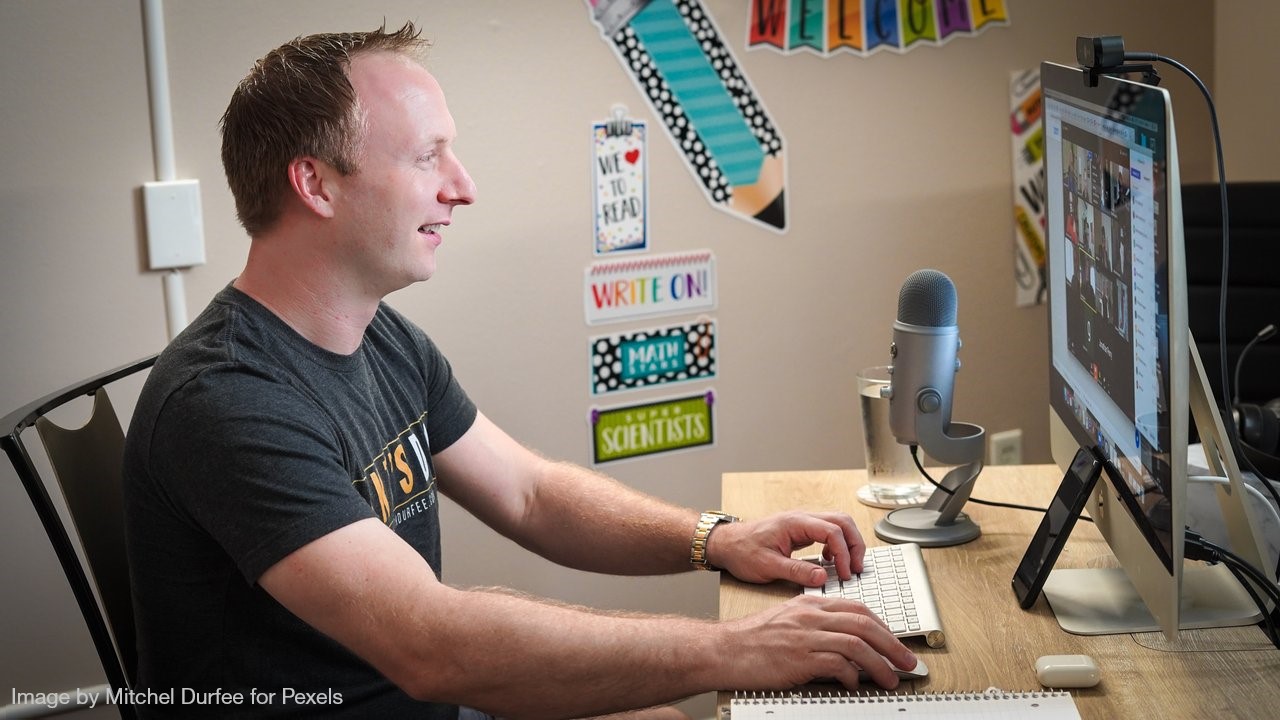
Can you believe we’re heading towards the 8-month mark of … well, you know (hint: masks, handwashing, hibernating in the summer)? Of course, this has impacted many areas of life including education. Our teachers are juggling with maintaining health and safety guidelines while providing quality instruction, regardless of the learning environment. To say that this can be a little stressful is an understatement, yet teachers are making every effort to keep their students engaged and motivated to try despite this challenging time. What does this entail? That teachers express enthusiasm and positivity to encourage their students, especially when they see them anxious or worried. This can take a toll on teachers.
As previously mentioned, teachers are determined to manage creating lesson plans, teaching in any number of environments (in-class, remote, hybrid), grading assignments, answering questions from both students and parents, and preparing assessments to try to accurately assess what their students are learning. In addition, they are also attempting to balance their own lives and needs, such as helping their children with school. There is a real risk of burnout and if not addressed, we could lose some amazing educators. Yet, at the heart of every teacher is someone who wants to keep going because they love their students. They see the potential in each child and want to encourage and nurture that. Teachers need to be encouraged and nurtured, too, especially by their administrators, instructional coaches, and other teachers. This strengthens relationships and boosts that sense of “family” that schools strive for. What are some ways this can be done?
- Check-in with one another regularly. This can range from short, simple texts to regular grade-level/department meetings. This “check-in” is especially important from the administrators and instructional coaches so that they hear how their teachers are doing and reassure them of their support.
- Be positive during staff meetings. Staff meetings can be a time that we wish we were somewhere else, but during this time use it to boost one another up. Share successes such as an amazing writing lesson or how a student finally understood how to add fractions. Talk about what’s working, especially if teaching in a remote or hybrid learning environment. Balance the conversations so that it isn’t all about what is frustrating — this can be more discouraging.
- Collaborate on lesson plans. Share ideas about activities and lessons, providing feedback on ways to improve them and resources that can be used. Even favorite lessons could benefit from other “eyes” for fresh updates. Schedule regular collaboration times and start each session with the ‘positives’ since the last meeting.
- Observe one another teach. This has proven to be helpful to instructional practice, as well as fosters a sense of collegial support. Before the observation, create a list of specific points to observe. For example, when conducting a STEM lesson for the first time, ask that the level of student engagement or active participation is observed (even quantified such as number of minutes of engagement). Afterwards, in a relaxed environment (over a cup of coffee), talk about the lesson and the points being observed. Give a shout out to the successes!
- Brainstorm virtual support ideas. Because many teachers are moving to remote learning due to spikes in coronavirus infections across the country, they need extra support to feel confident and successful. Together with instructional coaches, generate a list of ways coaches can provide resources and student support. This can range from providing activities, resources, and websites to viewing and giving feedback on teacher-made activities, presentations, and videos. Coaches can also coordinate assistance for differentiated learning, helping teachers meet the needs of the various groups in their class (Gifted, ELLs, students with 504s or IEPs, etc.).
Above anything else, simply be there. The power of listening and empathizing cannot be underestimated. Especially for teachers who are feeling less-than-confident about tech skills when it comes to distance teaching, extra time and individualized support can make a huge difference. So, send that text, schedule that collab session, offer help. There’s another 5-6 months to go in the school year — let’s use it to give one another regular “high-fives”!
Boxlight-EOS offers customized teacher training for any learning environment — in-class, remote, and hybrid. Many options are self-paced and online, meeting the needs of educators who must maintain social distancing guidelines. For more information, go to Boxlight.com/PD.
To read about how Boxlight-EOS supports Clayton Country Public Schools, click here.


